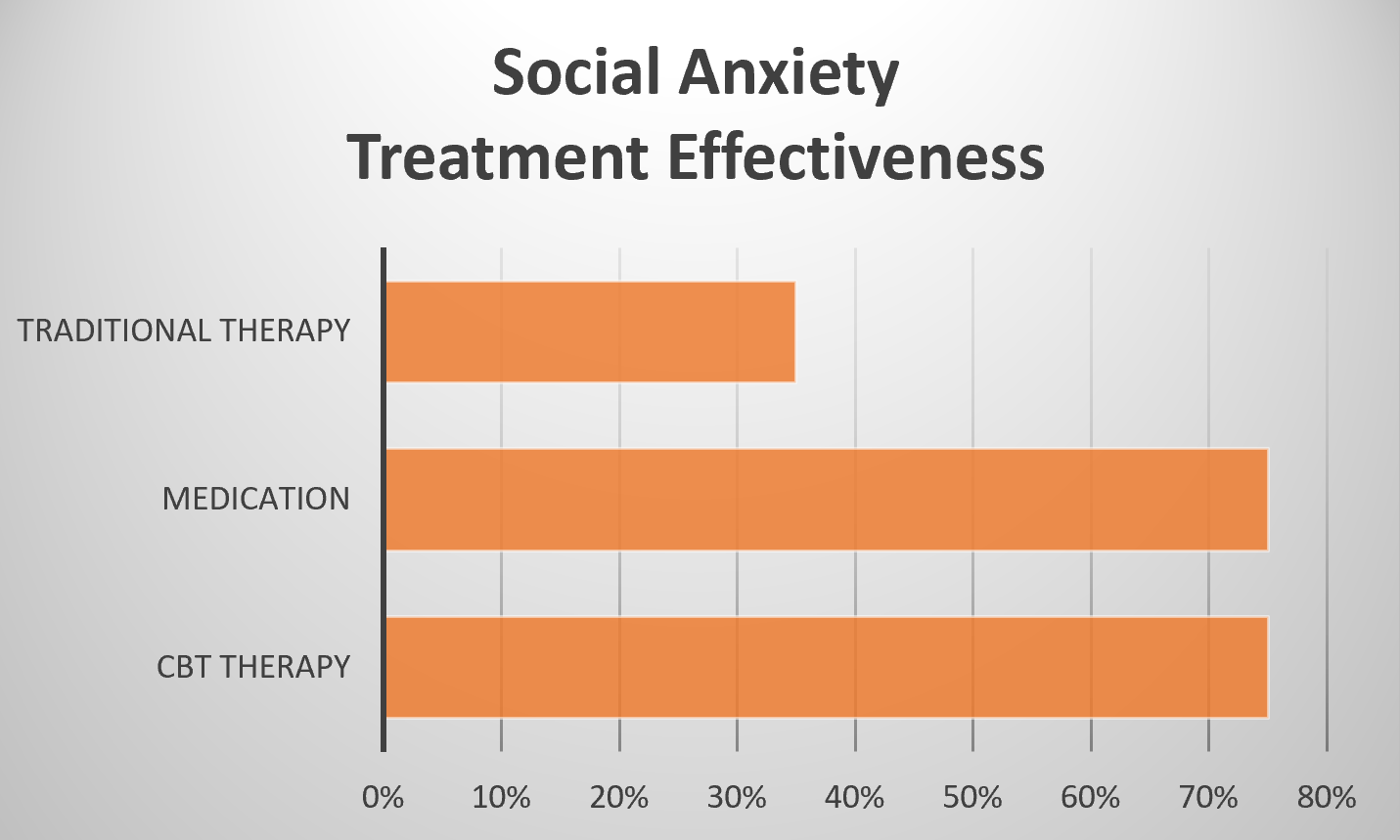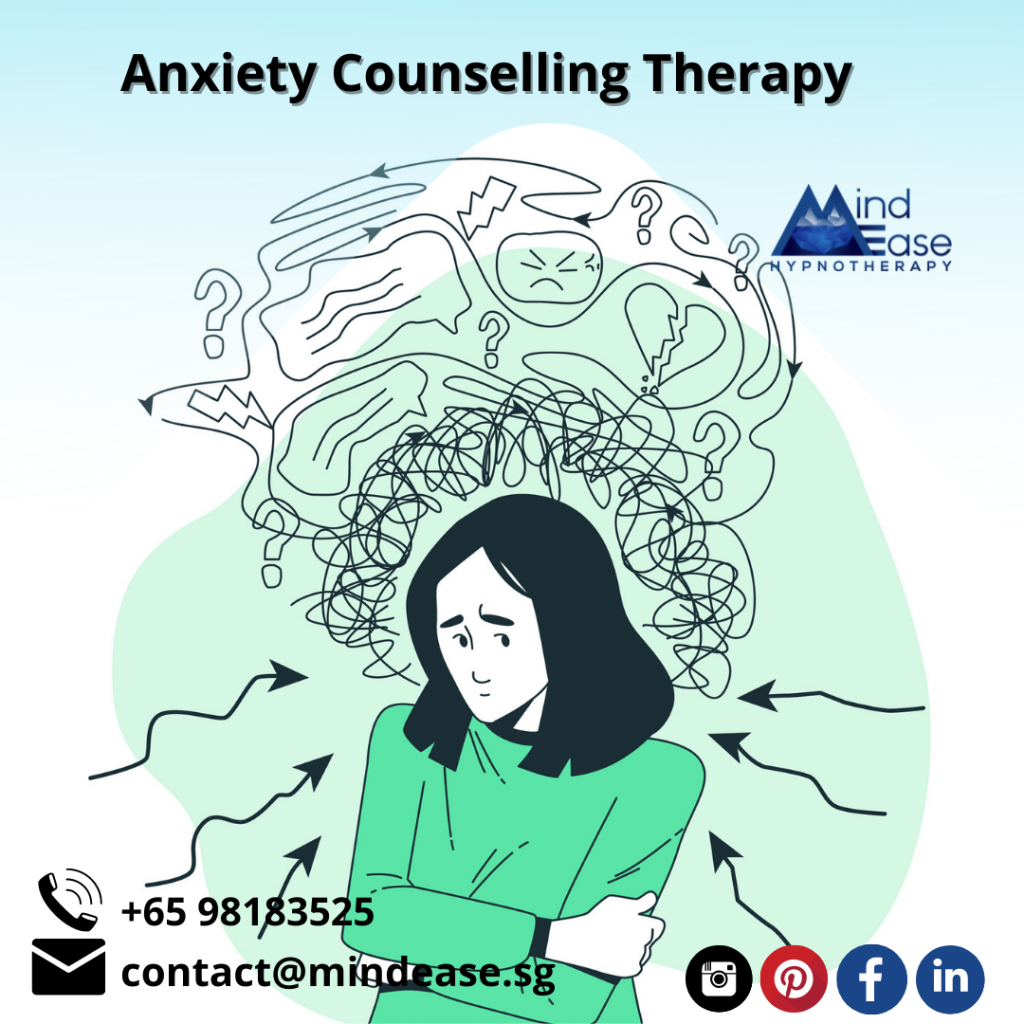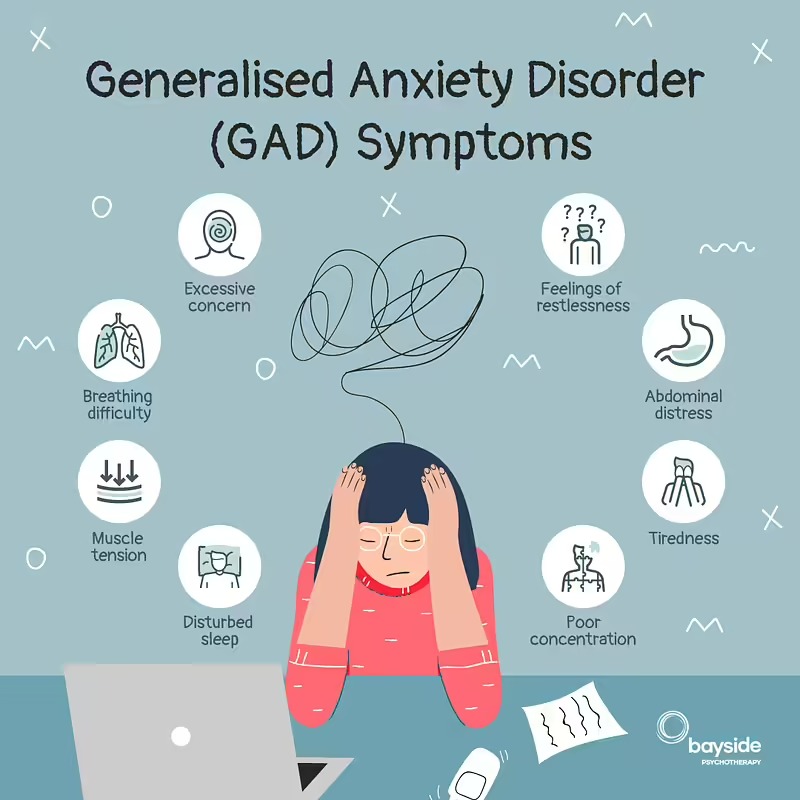Checking Out Different Techniques in Counselling for Anxiousness Condition for Long-term Modification
When taking on stress and anxiety problems, it's necessary to check out a variety of therapy approaches. Each method offers unique insights and tools to help you manage your symptoms successfully. You could find that integrating methods can yield the most effective results. However, recognizing the subtleties of these techniques is crucial to fostering lasting modification. What if the appropriate combination could release a brand-new level of psychological well-being for you?
Comprehending Anxiety Conditions: A Brief Overview
Anxiousness disorders, which impact countless individuals worldwide, can greatly impact day-to-day life. You may experience frustrating feelings of concern or worry that appear uncontrollable. These sensations can lead to physical signs and symptoms like an auto racing heart, sweating, or even lightheadedness. Usual kinds of stress and anxiety disorders include generalised stress and anxiety condition, panic condition, and social anxiousness condition. Each has unique signs, however they all share a tendency to interrupt your routine and relationships.Understanding the source of your anxiousness is essential. It could stem from genes, brain chemistry, or life experiences. Acknowledging your triggers can aid you handle your feedbacks much better. It is necessary to keep in mind that you're not the only one in this battle. Numerous individuals deal with comparable challenges, and looking for aid is a solid step toward feeling much better. By discovering anxiousness disorders, you're currently on the course to understanding and handling your condition better.
Cognitive-Behavioral Treatment: Challenging Unfavorable Idea Patterns
In Cognitive-Behavioral Therapy, you'll begin by identifying the negative idea sets off that contribute to your anxiousness. You'll work on changing them with more favorable options once you recognize these ideas. Together, you'll develop efficient coping techniques to aid manage your anxiety in day-to-day scenarios.
Recognizing Unfavorable Thought Triggers

When you experience minutes of distress, acknowledging the specific triggers behind your negative thoughts can be necessary in managing anxiety. Beginning by focusing on scenarios that provoke feelings of concern or concern. Is it a crowded space, a forthcoming target date, or a discussion with specific individuals? Take down these circumstances in a journal. This will help you recognize patterns in your reasoning. Notice physical experiences that accompany your negative thoughts, like an auto racing heart or rigidity in your breast. By identifying these triggers, you acquire insight into what's fueling your stress and anxiety. Comprehending these links is the primary step in challenging those thoughts and eventually restoring control over your psychological reactions.
Changing Ideas With Positives
Testing negative idea patterns is a vital action in transforming your attitude and reducing anxiousness. You may often locate yourself caught in cycles of insecurity or disastrous thinking. Rather than letting these thoughts dictate your sensations, method changing them with practical choices or positive affirmations. When you think, "I can't handle this," move it to, "I can take care of obstacles one step at a time." This easy modification can substantially influence your mood. Regularly determining and countering these adverse thoughts helps create a healthier internal dialogue. Remember, it takes some time and effort, yet regularly practicing this method can cause long-term change, empowering you to face anxiety with renewed confidence and durability.
Building Coping Techniques Together
Replacing negative thoughts is only the beginning of managing anxiousness successfully. To create long-term adjustment, you need to build coping techniques that empower you. Cognitive-Behavioral Treatment (CBT) aids you determine and challenge those unhelpful idea patterns. Together, you and your counselor can discover exactly how these thoughts effect your sensations and behaviors.Start by creating sensible strategies, like journaling or mindfulness exercises, that enable you to face stress and anxiety head-on. When you face your worries gradually, you'll find out to respond in a different way.

Mindfulness and Acceptance-Based Approaches: Growing Present-Moment Understanding
As you browse the intricacies of stress and anxiety, incorporating mindfulness and acceptance-based strategies can substantially boost your capability to grow present-moment understanding. By focusing on the present moment, you'll find that you can observe your thoughts and sensations without judgment (Counseling services for anxiety). This practice assists you recognize your anxiety without feeling bewildered by it.Engaging in mindfulness workouts, such as deep breathing, body scans, or directed meditations, allows you to ground on your own in your existing experience. Acceptance-based techniques motivate you to welcome your feelings instead of battle versus them. When you approve your feelings, they lose their power over you.Incorporating these techniques right into your daily routine can change exactly how you respond to anxiousness. You'll develop resilience and learn to browse stressful circumstances with higher convenience. Ultimately, cultivating present-moment awareness lays the foundation for enduring change, equipping you to lead an extra meeting life
Exposure Therapy: Confronting Worries Gradually
Direct exposure treatment helps you challenge your worries in a steady method, making it much less overwhelming. You'll find out techniques to deal with anxiety-provoking circumstances detailed, while also developing coping techniques to handle your responses. This strategy encourages you to take control and reduce anxiousness in time.
Gradual Exposure Strategies

When dealing with anxiety, progressively facing your fears can be an effective way to reclaim control. This method, called steady exposure, includes slowly subjecting yourself to the scenarios or items that trigger your stress and anxiety. Start with much less intimidating scenarios and gradually function your method as much as more difficult ones. For example, if you hesitate of public talking, you could begin by talking before a mirror, then proceed to sharing thoughts with a friend, and ultimately resolve a small team. Each step aids desensitize you to the anxiety, building your confidence over time. Remember, it's important to speed on your own and commemorate little triumphes as you relocate through this process, strengthening your capability to take care of anxiousness efficiently.
Building Coping Methods
Structure reliable coping approaches is vital for handling stress and anxiety, specifically as you confront your fears gradually - Counseling services for anxiety. One powerful technique is exposure therapy, where you start by encountering your concerns in a controlled manner. Start with much less frightening scenarios and gradually function your means approximately even more tough scenarios. This progressive direct exposure aids desensitize you to stress and anxiety activates, making them less overwhelming.Incorporate relaxation strategies, such as deep breathing or mindfulness, to calm your mind during direct exposure. Track your development, commemorating tiny triumphes in the process to increase your self-confidence. Remember, it's alright to take here your time; the goal isn't perfection yet consistent renovation. By developing these methods, you'll encourage on your own to browse anxiety and embrace life a lot more fully
Psychodynamic Therapy: Discovering Origin of Stress And Anxiety
Psychodynamic therapy checks out the subconscious mind, exposing the origin of your anxiousness. By analyzing your ideas, sensations, and past experiences, this technique helps you reveal underlying disputes and unsettled concerns that may add to your current anxiety. You'll collaborate with a specialist to examine youth experiences, partnerships, and psychological patterns that shape your responses today.As you acquire insight into these much deeper layers of your subconscious, you'll start to acknowledge just how past events influence your existing behavior. This understanding can bring about catharsis, permitting you to process feelings you might have suppressed.Through the therapeutic partnership, you can likewise determine defense devices that may have created with time, using a clearer path to transform. Eventually, psychodynamic treatment outfits you with the devices to address your anxiety at its core, promoting long-term makeover in your emotional wellness.
Holistic and integrative Techniques: Combining Methods for Greater Effectiveness
Integrating various healing techniques can boost your trip toward handling anxiety a lot more successfully. By integrating elements from cognitive-behavioral treatment, mindfulness practices, and alternative techniques, you can create a tailored approach that addresses your unique requirements. You might make use of cognitive-behavioral techniques to challenge unfavorable thought patterns while incorporating mindfulness workouts to ground on your own in the present moment.Additionally, checking out all natural practices such as yoga exercise or meditation can promote leisure and minimize anxiousness symptoms. This blend permits you to develop higher self-awareness and resilience.Experimenting with these diverse approaches can help you discover what resonates most with you. Remember, it's concerning finding a synergy that works, instead of staying with a single method. This integrative technique not just provides instant alleviation yet also cultivates long-lasting skills for handling anxiety, encouraging you to recover control over your life.
The Function of Support Equipments: Structure Durability Via Connection
While it may seem that managing anxiety is a solitary trip, having a strong support group can play a crucial duty in your durability. Surrounding on your own with empathetic pals, household, or assistance teams creates a risk-free space where you can freely share your feelings and experiences. When you get in touch with others, you remind yourself that you're not alone in this struggle.These connections provide inspiration and can supply useful coping approaches that have actually benefited others. It's additionally a chance to get point of view; pals can aid you see situations differently, minimizing feelings of isolation.Moreover, psychological assistance cultivates a sense of belonging, which can considerably relieve anxiety symptoms. By leaning on your support group, you can construct resilience and deal with challenges better. Keep in mind, connecting for assistance suggests stamina, and it can make all the distinction in your journey toward taking care of anxiousness.
Regularly Asked Questions
What Are the Usual Symptoms of Anxiousness Disorders?
You could experience restlessness, fatigue, difficulty focusing, irritability, muscle stress, and sleep disruptions. Physical signs can include rapid heartbeat, sweating, and shivering. Identifying these indications early can help you look for suitable support and therapy.
How Lengthy Does Treatment Normally Last for Anxiousness Disorders?
Treatment for anxiety problems usually lasts anywhere from a few weeks to several months. It actually relies on your private requirements, progression, and the strategies your therapist makes use of to aid you manage your anxiousness successfully.
Can Drug Be Used Along With Treatment for Anxiety?
Yes, medication can definitely be made use of along with treatment for anxiety. Combining both strategies usually boosts treatment effectiveness, helping you manage signs and symptoms while discovering underlying problems via therapy (Counseling services for anxiety). Always consult your healthcare copyright for tailored recommendations
Are There Self-Help Approaches for Handling Anxiety?
Yes, there are numerous self-help techniques for taking care of stress and anxiety. You can exercise mindfulness, take part in regular workout, maintain a well balanced diet, develop a routine, and make use of deep breathing methods to aid minimize anxiety signs efficiently.
Just how Do I Know if I Need Specialist Aid for Anxiousness?
